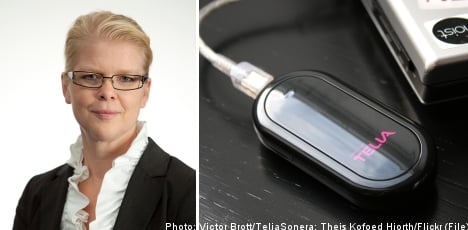As head of TeliaSonera’s broadband services operation, Frenning is responsible for handling 85 percent of European internet traffic, enough for the Veckans Affärer magazine to put her at the top of its annual list of Sweden’s most powerful women.
“If her business had been a listed company, it would claim a place on the large-cap stock market listing as it is, for example, larger than, (mining firm) Boliden,” the magazine’s citation read.
The modest Frenning said in response to the confirmation of her lofty position within Swedish business, that she would have like to have seen more competition, arguing that there remained too few women in leading positions in Swedish firms.
“Of course a bigger mix is required,” she said.
Annika Falkengren of Nordic banking concern SEB was named as runner in the list published annually to mark International Women’s Day on March 8th.
According to new statistics published on Tuesday the number of women on the boards of Swedish companies is actually in decline.
Between 2010 and 2011, the proportion of women on the boards of Swedish companies fell from 19 percent to 15 percent, according to a statistics compiled by credit reporting firm Creditsafe.
The decline applied to companies in all areas of the country with female influence declining most among major companies.
Among firms with more than 199 employees the proportion of women board members has declined from 33 percent in 2010 to 18 percent in 2011, the statistics show.
There are however two sectors which buck the negative trend – social care and services.



 Please whitelist us to continue reading.
Please whitelist us to continue reading.
Member comments